Description
Phenobarbital is a barbituric acid derivative with a sedative effect. In high doses, it has a sedative and anticonvulsant effect. The drug also inhibits the production of thyroid hormones. The effect of slightly lowering blood pressure and slowing heart rate is pronounced in people with arterial hypertension. Peripherally, it reduces smooth muscle tone (has an antispasmodic effect).
Phenobarbital medication is used to treat insomnia and as a sedative to relieve symptoms of anxiety or tension. Phenobarbital tablets are also prescribed to reduce some forms of seizures. The active ingredient works by slowing down the brain and nervous system.
Phenobarbital is also used to lower bilirubin levels in infants. Bilirubin is a substance that is produced by the body and excreted by the liver. Bilirubin elimination from the body of the newborn is slower, so the drug is prescribed to speed up the process.
Phenobarbital suppresses thyroid hormone production. Peripherally reduces smooth muscle tone (has an antispasmodic effect). If this product does not meet your needs or interests, you may want to look at Rivotril Clonazepam. Please visit this link for further information on our Anticonvulsant Drugs
Phenobarbital Pharmaceutical Form
These are oral pills where the main active agent is barbituric acid. Usually, one package contains 40 tablets. Phenobarbital 100 mg pills with other content of active agent (15 mg, 30 mg) look like white and round tabs without smell and taste. Additionally, it is possible to find Phenobarbital in liquid form, the so-called elixir. Inactive agents presented in the generic are:
- Corn starch;
- Lactose;
- Magnesium;
- Sodium, etc.
Note that in most cases patients are tolerant to the components of this medicine. Nevertheless, Phenobarbital pills should be used according to the dosage plan to avoid side effects and addiction to the anticonvulsant agents.
What is Phenobarbital used for?
The indications for the use of this medicine are the following conditions:
- epilepsy in any form;
- various seizures;
- chorea;
- meningitis; tetanus;
- alcohol withdrawal;
- spastic paralysis;
- severe insomnia;
- various mental disorders;
- overstimulation, anxiety.
Discontinuation of treatment with such drugs should be gradual because “withdrawal syndrome” often occurs.
When should the drug not be used?
Phenobarbital medication should not be used if the patient is allergic to the active substance or any other substance contained in the drug. It is also not recommended for people suffering from respiratory insufficiency, severe liver failure, or porphyria, as well as for pregnant and lactating women. If you have any other medical conditions, tell your doctor to reduce the risk of side effects.
Phenobarbital: side effects
Phenobarbital medication may cause side effects. Call your doctor if any of the following symptoms are noticed:
- drowsiness;
- headache;
- dizziness;
- agitation or increased activity (especially in children);
- nausea or vomiting.
More serious side effects include slow breathing or shortness of breath; swelling of the eyes, lips, or cheeks; rash; bloating and peeling of the skin; fever; confusion.
Phenobarbital may be addictive. Do not increase the dose; take it strictly as prescribed by your doctor.
Phenobarbital dosage
The drug is indicated for generalized tonic-clonic seizures and simple partial seizures, particularly for pharmacoresistant epilepsy. Adults can take Phenobarbital tablets independently of meals. The tablets can be divided into equal halves and washed down with plenty of liquid. Phenobarbital tablets should not be chewed. The dosage is prescribed strictly by the doctor for each patient individually. The doctor prescribes 50-250 mg once a day or divided into several doses. The highest daily dose for adults is 500 mg. If a dose is missed, it must be taken as soon as possible. When it is time to take the next tablet, skip the missed one to avoid an overdose.
|
Child’s age |
Single-dose (mg) |
Daily dose (mg) |
|
Up to 6 months |
5 |
10 |
|
From 6 months to 1 year |
10 |
20 |
|
1-2 years |
20 |
40 |
|
3-4 years |
30 |
60 |
|
5-6 years |
40 |
80 |
|
7-9 years |
50 |
100 |
|
10-14 years |
75 |
150 |
Children
For children under 3 years of age, crush the required number of tablets to a powdery state, dissolve them in water and use as suspension. The duration of treatment depends on the course of the disease.
Phenobarbital Dosage & Use
As the medicine can be used as a sedative or anticonvulsant treatment course, it is necessary to pick sides with the appropriate dosage plan with your doctor. Let’s take a closer look at the average ways of Phenobarbital use:
- A pediatric dosage plan usually relates to the preoperative intake of this medicine. Phenobarbital is prescribed to adult patients to prepare them for surgeries, to block painful sensation, etc. The average dose is 1-3 mg for 1 kg of weight. For example, if the patient weighs 60 kg, the daily dosage of Phenobarbital is from 60 mg up to 180 mg (1/2 x 100 mg pill, 2 x 30 mg pills, etc.). Everything depends on the content of the active agent (from ½ up to 1-2 pills a day).
- A sedative dosage plan includes 2-3 daytime doses. Depending on the patient’s weight, it can be from 30 up to 120 mg of Phenobarbital active agent a day. It is better to use the medicine with enough water after meals.
- A hypnotic dosage plan is usually about a single medicine intake. The patient should use from 100 up to 350 mg of Phenobarbital before going to bed. This is the bedtime hypnotic medication that treats insomnia and anxiety.
- Anticonvulsant dosage plan is about drug intake 2-3 times a day. The main aspect of the efficient treatment is the regular use of Phenobarbital. The patient usually is prescribed about 50-100 mg of medication every 2-3 times daily. Note that anticonvulsant and hypnotic dosage plans do not depend on the weight of the person.
Speaking about the peculiarities of Phenobarbital use, the only administration is oral for this generic. Among the key factors, that matter for the dosage plan indirectly are the patient’s age, and the severity of the disease to be treated.
Phenobarbital Half-Life
This drug obtains rather long half-life terms. That is why most doctors prescribe single daily dosing for patients with convulsing issues and preoperational indications. Additionally, it is recommended to use Phenobarbital one time every day at bedtime for improved sedation achieved due to the long half-life of the medication.
Phenobarbital for anxiety
Phenobarbital is a barbiturate medication used to treat several conditions, including seizures, anxiety, panic attacks, and insomnia. The drug is sometimes given to patients who have been treated for chemical dependency (an example, from barbiturates).
Phenobarbital and Alcohol
Attention! This medication excludes drinking alcohol during the course. The risk of side effects increases. Additionally, this is the doubled load over the cardiovascular system of the patient. Some healthcare specialists say that using alcohol with Phenobarbital brings the same effect as overdosing with this drug.
Phenobarbital: epilepsy
Epilepsy is a condition that occurs in the central nervous system. An epileptic seizure is an expression of brain dysfunction consisting of excessive, uncontrolled bioelectrical discharges in neurons. The key here is the excessive excitability of the nerve cells.
A seizure can take many forms, such as typically generalized seizures, mild muscle tremors, or simply changes in a person’s behavior. Phenobarbital (known anticonvulsant drug) controls epileptic seizures, depresses the central nervous system, and is sometimes used as a sedative. The drug is used to control tonic-clonic and simple partial seizures.
Phenobarbital: interaction
Phenobarbital when interacting with other medications may affect their effectiveness:
- weakening the action of hypoglycemic drugs
- increasing the effect of analgesics (non-steroidal analgesics)
- decrease in the effect of anticoagulants
- decrease in the effect of contraceptives.
Phenobarbital can affect the absorption of calcium from food and drugs, which leads to a deterioration of bone calcification. Sudden discontinuation of barbiturates may increase the effect of anticoagulants (coumarin derivatives). Alcohol greatly enhances the effects of barbiturates, which can lead to collapse and even death.
If you want to buy Phenobarbital online, please consult our specialist first.
Phenobarbital Overdose
If the patient does not follow the dosage plan and takes more pills than prescribed, most possible side effects escalate and become dangerous for human health. Nervous and respiratory systems are at risk. The patient can face:
- Confusion;
- Depression;
- Nightmares;
- Insomnia;
- Apnea, etc.
Speaking about cardiovascular and digestive systems, syncope, nausea, vomiting, and other side effects take place in the case of Phenobarbital overdose.
How Long Does Phenobarbital Stay in Your System?
About 4-5 half-lives are required to eliminate the drug from the human system. The active agent of the generic can be seen in the urine even 2 weeks after the last dose. Be ready that your blood test can show barbiturate acids.
Where to Buy Phenobarbital?
You can find this drug in the Internet pharma stores and local pharmacies. Buying Phenobarbital online is more profitable if the seller guarantees discounts and special offers for bulk orders. For example, Mexican pharma stores can become trusted providers of medical supplies at affordable prices.
Side effects
Fenabbott tablets can cause different types of side effects, although they do not occur in all patients. It depends on each person’s different sensitivity to the drug.
|
Skin disease |
Urticaria, angioedema, skin rash, vulgar vesicles, Stevens-Johnson syndrome, and toxic epidermal necrolysis. |
|
Gastrointestinal disorders |
Nausea and sometimes vomiting |
|
Hepatobiliary disorders |
May cause toxic hepatitis |
|
Lungs and respiratory tract disease |
May cause apnea, respiratory depression, laryngospasm, and coughing |
|
Cardiovascular abnormalities |
Hypotension, shock, vasculitis, and thrombophlebitis |
|
Metabolic disorders |
Changes in lipid levels, hypocalcemia (decreased blood calcium concentration) and acute intermittent porphyria. |
|
Diseases of the blood and lymphatic system |
Thrombocytopenia (decreased number of platelets in the bloodstream), leads to clotting disorders, leukopenia (decreased number of leukocytes in the blood), and anemia (decreased amount of hemoglobin in the blood). |
Other side effects include miosis (constriction of the pupil), mydriasis (dilation of the pupils), nystagmus, optical neuropathy, and genetic mutations.
Dosage of Fenabbott 100 mg
When administered orally as an anticonvulsant, the usual dose of Fenobarbital for adults is 100-300 mg per day. When used as a sedative, the drug dose is 50-100 mg per day.
The recommended dose of Phenobarbital for children is 20-100 mg and depends on age and body weight. The medication is long-acting barbiturate. A dose of 6 to 10 grams can be fatal.
Overdose
If a patient has taken too large a dose of Fenabbott tablets, the following side effects may occur, such as headache; nausea; vomiting; darkening of the eyes; confusion; a state close to a coma. The comatose state is accompanied by irregular bradypnea, tracheobronchial obstruction, and arterial hypotension.
In case of intoxication, gastric lavage should be performed immediately, if the patient’s condition allows it. Excretion of already absorbed Phenobarbital can be carried out by forced diuresis or by alkalizing the urine. In severe cases, hemodialysis may be prescribed. Treatment is symptomatic, there is no antidote.
Contraindications
Administration of Fenabbott tablets is contraindicated in the following cases:
-
Cases of hypersensitivity to Fenabbott
-
Patients with porphyria
-
Patients with severe hepatic or renal impairment
-
Patients with respiratory illnesses
-
Patients with severe heart disease
-
Patients with acute alcohol intoxication
-
Together with analgesics and sedatives
-
During pregnancy and breastfeeding
-
Patients who take other drugs containing Phenobarbital and Primidone (an antiepileptic drug).
Fenabbott may be addictive. Great caution should be exercised when prescribing the drug to patients with hepatic or renal insufficiency, elderly patients, or patients with alcoholism.

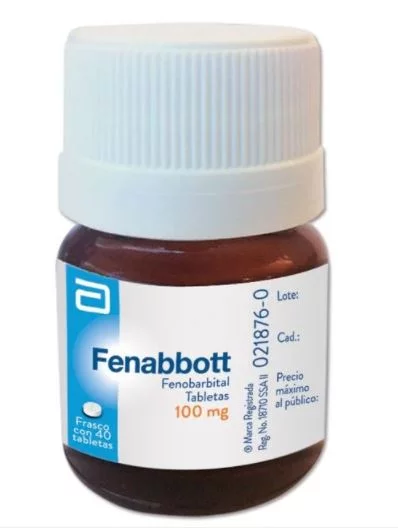
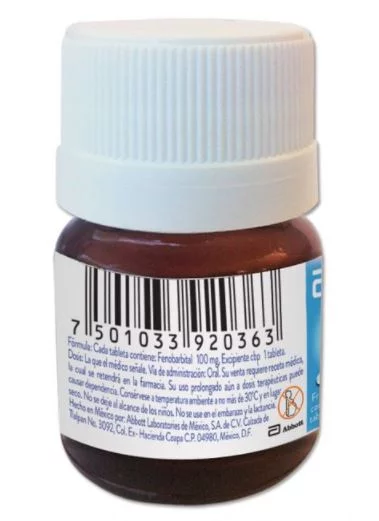
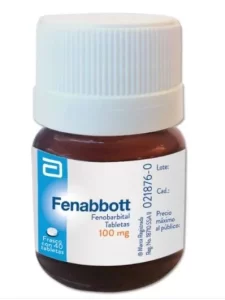
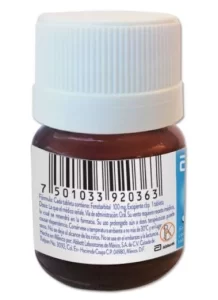
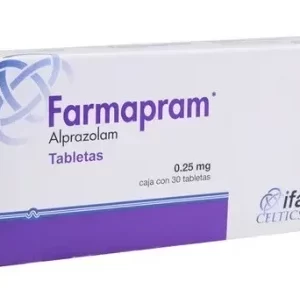

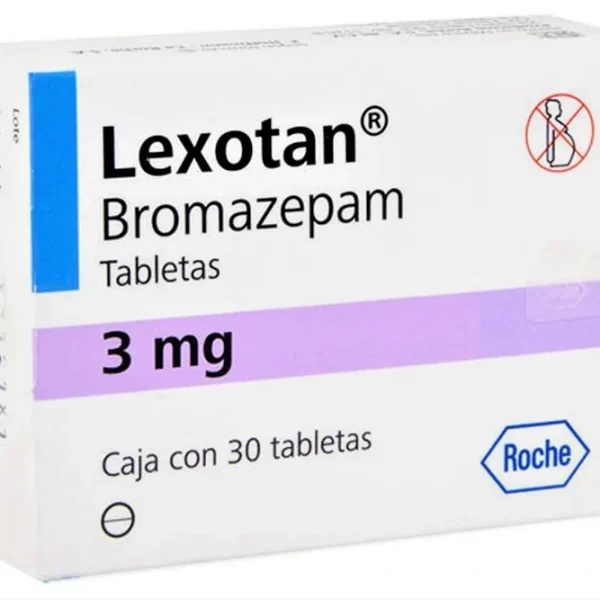
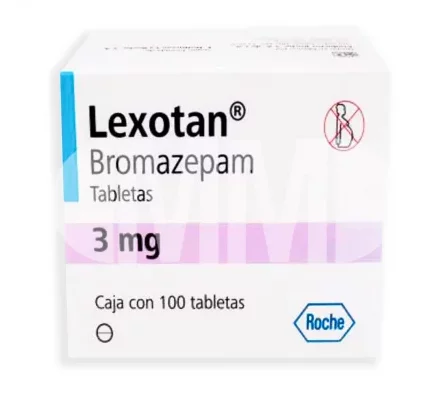
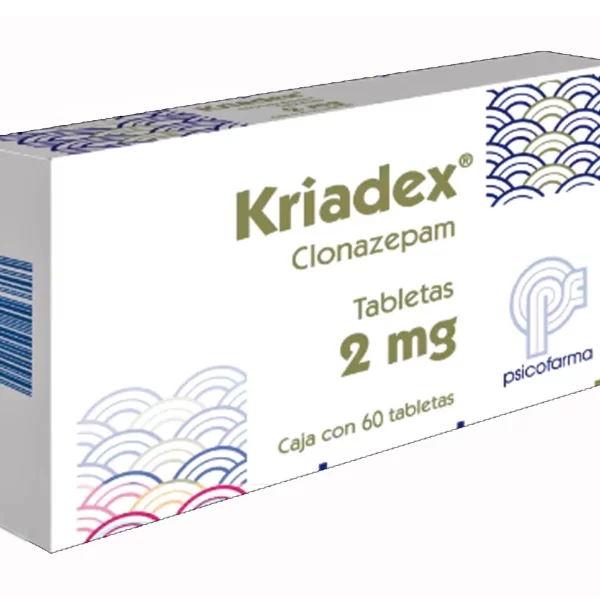
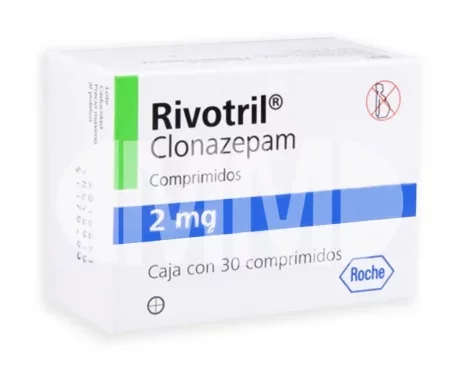
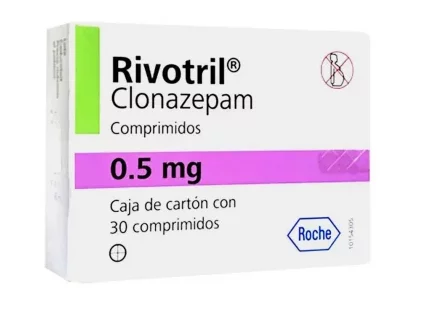
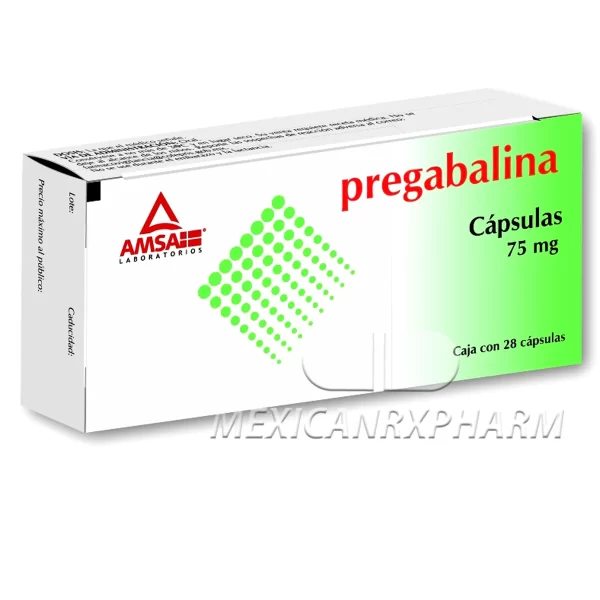
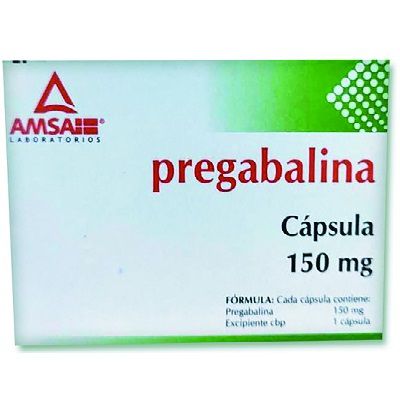
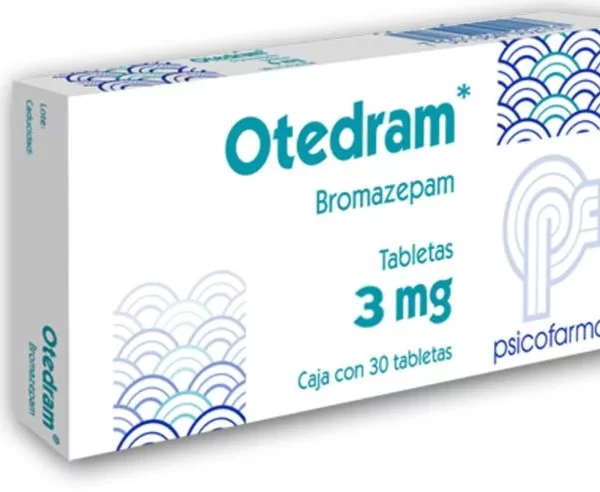
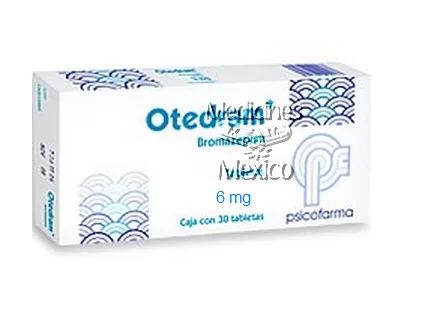
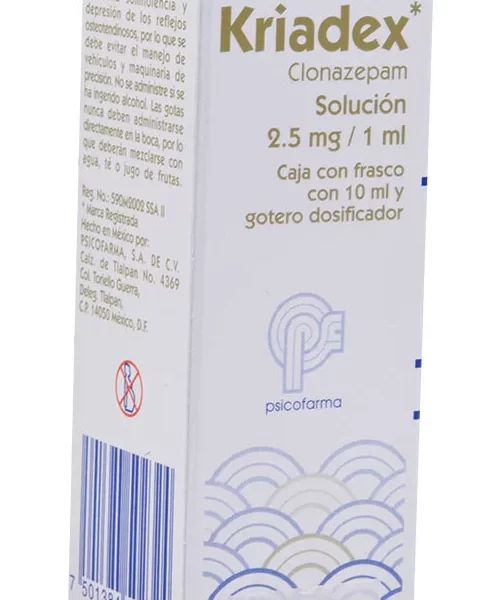
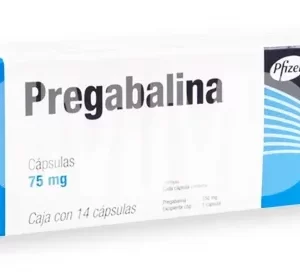
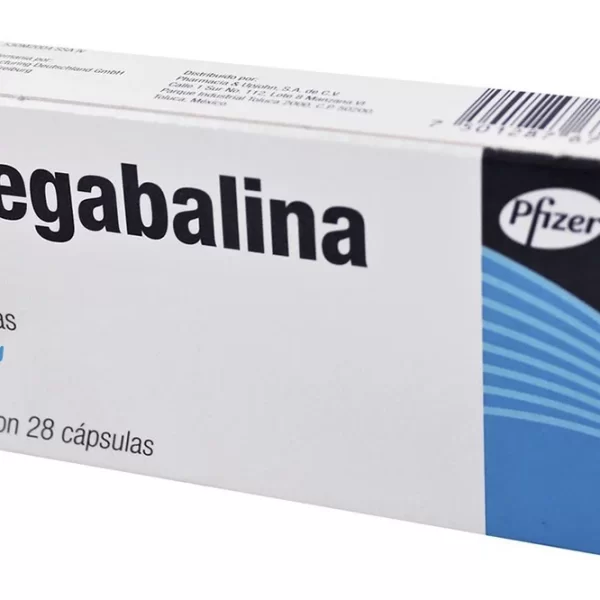
Reviews
There are no reviews yet.